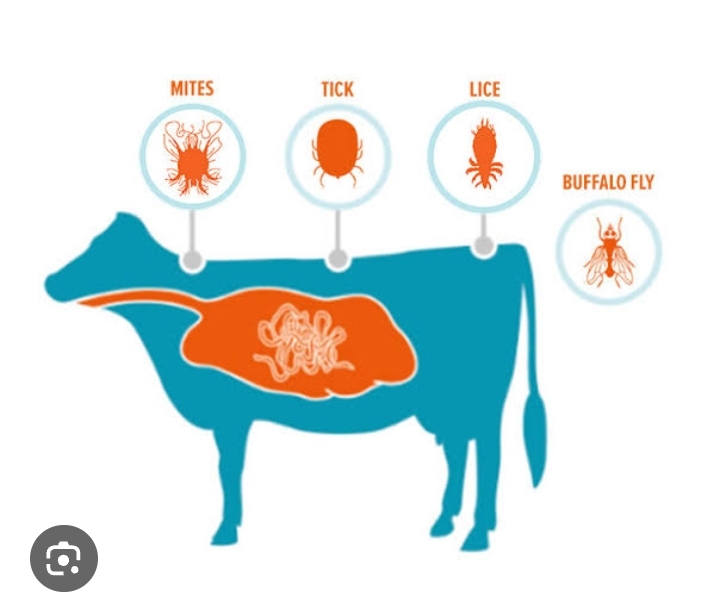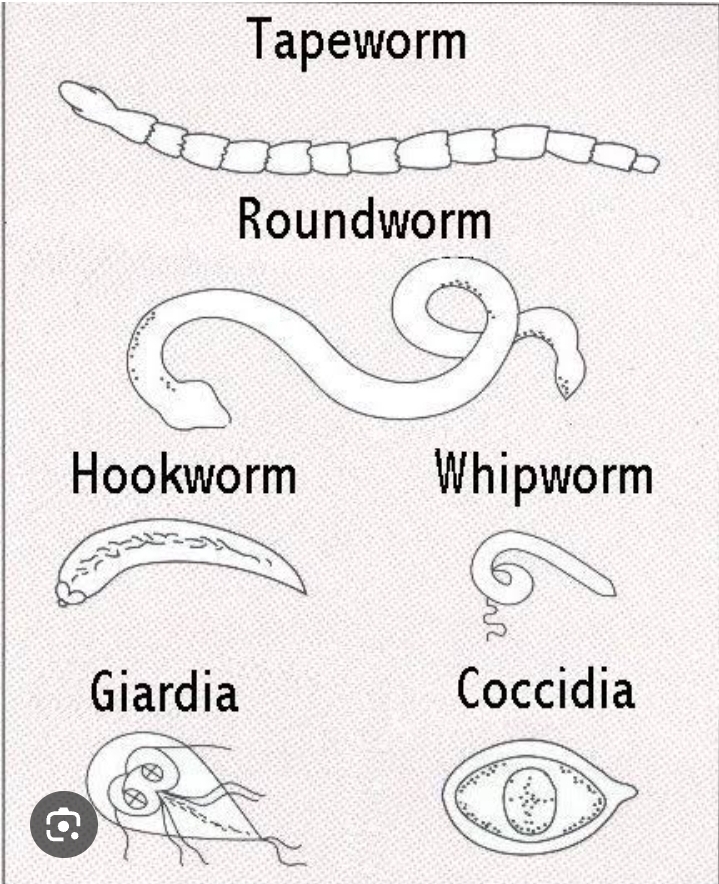
Internal parasites are organisms that live inside a host’s body, feeding off the host’s nutrients and often causing harm. They can infect various parts of the body, such as the intestines, lungs, blood, and other organs. Here are some common types of internal parasites:

1. Helminths (Worms)
- Nematodes (Roundworms): These include Ascaris, hookworms, and pinworms. They are common in the intestines but can migrate to other organs.
- Cestodes (Tapeworms): Tapeworms live in the intestines and can grow several feet long. They attach to the intestinal wall and absorb nutrients from the host.
- Trematodes (Flukes): Liver flukes, blood flukes (like Schistosoma), and lung flukes are examples. These often have complex life cycles involving multiple hosts.
2. Protozoa
- Giardia: A microscopic parasite that causes gastrointestinal illness, leading to diarrhea and dehydration.
- Entamoeba histolytica: Causes amoebiasis, which can lead to severe diarrhea and liver abscesses.
- Plasmodium: The cause of malaria, transmitted through the bite of an infected mosquito, affecting the liver and red blood cells.
- Toxoplasma gondii: Can cause toxoplasmosis, especially dangerous for pregnant women and immunocompromised individuals.

3. Tissue Parasites
- Trichinella spiralis: Causes trichinosis, often from consuming undercooked meat. The larvae encyst in muscle tissues.
- Echinococcus: The larval stage of tapeworms can cause hydatid disease, forming cysts in organs like the liver and lungs.
- Filaria: Worms that cause lymphatic filariasis (elephantiasis) by infecting the lymphatic system.
Symptoms of Internal Parasitic Infections
- Abdominal pain and discomfort
- Diarrhea or constipation
- Unexplained weight loss
- Fatigue and weakness
- Anemia (especially with hookworms)
- Itchy skin or rashes (in some cases)
Transmission
- Contaminated food or water
- Poor hygiene (e.g., hand-to-mouth transmission)
- Insect bites (e.g., mosquitoes, flies)
- Contact with contaminated soil
Prevention

- Proper sanitation and hygiene (handwashing, clean drinking water)
- Thoroughly cooking food, especially meat
- Use of insect repellent and protective clothing in areas with vector-borne diseases
- Regular deworming in areas with high parasite prevalence
- Also Read about Animals Affected with mastitis:
Treatment
- Antiparasitic medications: Drugs like albendazole, mebendazole, praziquantel, and metronidazole are commonly used to treat various parasitic infections.
- Supportive care: For severe cases, hospitalization and supportive care may be necessary, particularly in cases of dehydration, anemia, or organ damage.
Regular screening and prompt treatment are essential, especially in areas where parasitic infections are common.

Leave a Reply